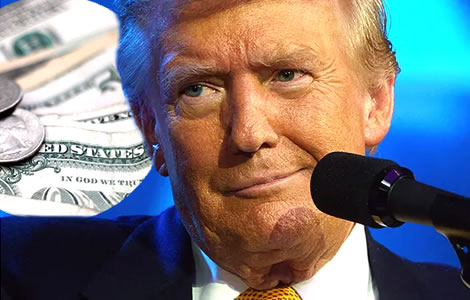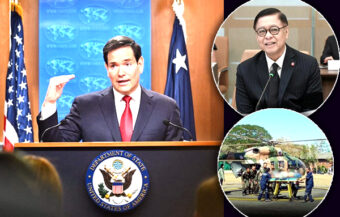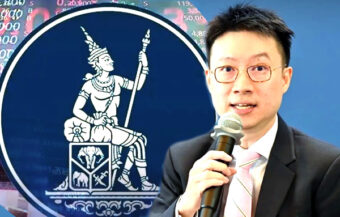Trump’s economic agenda, “Maganomics,” promises a massive protectionist shift for the U.S., risking global tensions and trade wars. Critics warn his aggressive tariffs and isolationist policies would raise costs for Americans and further strain China-U.S. relations.
With the U.S. election just weeks off and the candidates neck and neck, analysts are looking closely at policies. In particular, the radical economic plans being proposed by former President Donald Trump. What was Trumponomics has now become Maganomics. This is an evolutionary progression that will bring America back to full-blown protectionism. At the same time, if implemented, it will severely deepen already fraught global tensions, particularly between China and the United States. Certainly, it will spell the end of globalism as the world knew it before the 2016 U.S. General Election.

Donald Trump’s bid for the White House in 2024 is as divisive as ever, but his economic agenda, dubbed “Trumponomics” or “Maganomics,” is taking centre stage.
At a campaign rally in Tucson, Arizona, earlier this month, the former president unveiled sweeping plans aimed at reshaping the American economy, with promises of revitalising domestic manufacturing through aggressive tariffs.
The speech, delivered with Trump’s characteristic bravado, also included controversial claims about immigrants, but the focus quickly shifted to what Trump described as the “mayhem and misery” under the Biden administration. “We will deliver low taxes, low regulations, low energy costs, low interest rates, and low inflation,” Trump declared to the cheering crowd. “So that everyone can afford groceries, a car, and a beautiful home.”
For months, Trump has targeted the Biden-Harris administration over the rising cost of living, offering a mix of traditional Republican remedies, such as tax cuts, and more populist policies that aim to protect American workers and industries from foreign competition.
Tariffs at the Heart of Maganomics
Central to Trump’s economic plan is the introduction of new tariffs on imports, especially from China. These tariffs are part of a larger push to reduce America’s reliance on foreign goods and encourage domestic manufacturing. JD Vance, Trump’s running mate and a strong supporter of this agenda, emphasized the focus on protecting U.S. jobs. “We believe that a million cheap knock-off toasters aren’t worth the price of a single American manufacturing job,” Vance said at a rally in July.
Second Trump Presidency threatens further damage to the baht, the economy and Thai money markets
Trump helps promote sons’ crypto business firm just 50 days before the US Presidential election in November
In swing states like Michigan, where manufacturing plays a pivotal role in the economy, Trump’s proposed tariffs have resonated with many voters. Manufacturing states, particularly those that rely on industries like automotive production, have seen a decline in jobs in recent years, with many blaming outsourcing and cheap foreign imports.
While the tariffs are seen as a means to boost American manufacturing, critics argue that they could backfire, leading to higher costs for consumers and businesses. According to Jason Furman, a former White House economist under President Obama, “If Donald Trump did half of what he’s promising, the results for the U.S. economy would be chaotic and negative.”
Criticism from Economists and Opponents
Trump’s opponents, both Democrat and Republican, have voiced concerns over the impact of his economic proposals. Vice President Kamala Harris, speaking during a recent debate, warned that Trump’s policies would worsen inflation and harm the economy. “Sixteen Nobel laureates have described his economic plan as something that would increase inflation and, by the middle of next year, invite a recession,” Harris argued.
Even some conservative economists close to Trump are cautious about his protectionist stance. Arthur Laffer, an economist with ties to Trump, expressed concern over the long-term consequences of aggressive tariffs and trade sanctions. “You need to trade, especially with your enemies,” Laffer said. “All of this stuff—sanctions, threats of tariffs—is not the right way to go. That’s a way of guaranteeing World War Three.”
Despite these warnings, Trump and his supporters remain undeterred. He is positioning tariffs and a crackdown on immigration as key elements in his strategy to restore the U.S. economy.
A Return to Protectionism
If implemented, Trump’s plan would represent a significant shift in U.S. economic policy, moving away from the free-trade principles that have governed global commerce for decades. For much of the 20th century, the U.S. economy was shaped by trade agreements and economic partnerships that facilitated the free movement of goods across borders. Trump’s vision, however, harks back to an era when tariffs were a primary source of government revenue and domestic industries were heavily protected from foreign competition.
The approach appeals to some voters, particularly those in manufacturing-heavy states. In turn, it risks disrupting the global supply chain and damaging relationships with key trade partners. As Furman pointed out, “The biggest thing we have on our side against China is that we’re part of a bloc of countries that get along pretty well. Putting tariffs on all of those countries would rip that apart.”
In essence, Trump’s plan could reverse decades of economic integration, leading to trade wars and heightened global tensions. Many economists believe that imposing tariffs on a wide range of imports would result in higher costs for American consumers. This would potentially wipe out any gains from job growth in the manufacturing sector.
The Impact on the Global Economy
The international implications of Trump’s proposals are just as significant. Trump’s plan to raise tariffs on imports from China, and potentially other countries.
Therefore this could escalate tensions between the U.S. and its trading partners. Global supply chains, already under strain from the COVID-19 pandemic, could face further disruptions.
Trump’s populist rhetoric also includes a desire for more political control over monetary policy and the U.S. dollar. Such a move could undermine the independence of the Federal Reserve. This body plays a crucial role in managing inflation and stabilising the economy.
A Risky Economic Gamble
Trumponomics represents a radical shift from the current economic policies of the United States. Some of Trump’s proposals, such as tax cuts, are familiar staples of Republican policy. However, his aggressive tariffs and protectionist agenda could have far-reaching consequences. Economists warn that these measures, if enacted, would likely raise prices, fuel inflation, and strain international relations.
For Trump supporters, the plan represents a chance to bring back American manufacturing jobs and secure economic independence. Critics see it a risky gamble. Certainly, something that could destabilise the U.S. economy and its place in the global market.
Join the Thai News forum, follow Thai Examiner on Facebook here
Receive all our stories as they come out on Telegram here
Follow Thai Examiner here
Further reading:
Second assassination attempt on President Trump sees shots fired. 58 year old suspect is arrested
Harris turns on the money taps as experts say the 2024 election will be even tighter than 2020
Trump pulls out all the stops as buoyant Kamala opens up a lead in three key battleground states
Trump resurgent with new running mate JD Vance as President Biden pulls out of the race
Attempted Assassination of Former President Donald Trump: Latest Updates and reactions from America
Second Trump Presidency threatens further damage to the baht, the economy and Thai money markets
Central bank holds interest rates. Economy will grow 2.6% in 2024 as Srettha pushes home ownership
Economy unlikely to grow in first quarter as Thai manufacturing crumbles. Hard choices ahead


















